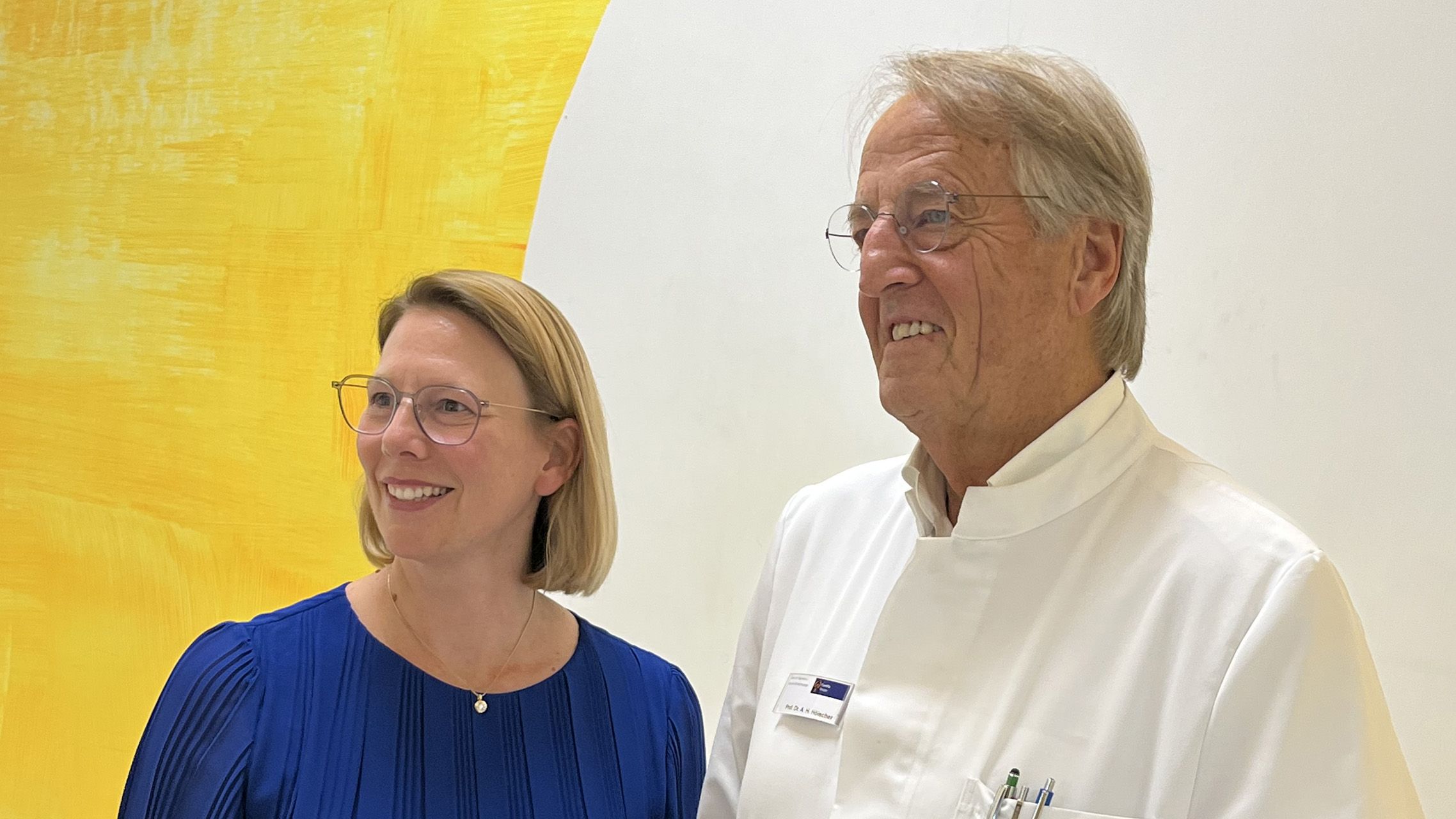What can patients with reflux do to prevent it at this early stage?
Regular endoscopic check-ups are key, especially for those with chronic heartburn. In cases of Barrett’s oesophagus, even minimally invasive procedures can prevent cancer from developing. A balanced diet, giving up smoking, and maintaining a healthy weight also go a long way in reducing risk.
If oesophageal cancer is diagnosed, what treatment options are now available?
Thanks to advances in visceral surgery, tumours can now be removed surgically – often using minimally invasive techniques – with greater precision and less trauma than ever before. Interdisciplinary teams develop tailored treatment plans for each patient. The earlier a tumour is discovered, the better the chances of recovery. We can do a great deal for our patients nowadays – but it’s crucial that they seek a diagnosis as early as possible.
On 1 July 2025, a special patient conference took place at the Contilia Clinic in Essen. Why did you choose this format and how do you look back on the event?
This conference marked a significant step forward. Heartburn is a daily reality for many – but it can be life-threatening. Chronic reflux can, over time, alter the lining of the oesophagus and pave the way for pre-cancerous changes. Although this link is well established in medical circles, it’s still not widely recognised by the general public. The event focused not just on medical presentations, but on real dialogue: patients who had already undergone treatment spoke candidly about their experiences with diagnosis, therapy, and life afterwards – directly engaging with those currently suffering from the condition. The atmosphere at the Contilia Clinic was shaped by openness, trust and empathy. Former patients encouraged those affected and showed them that even a grave diagnosis is not the end of the road. Hearing these stories first-hand gave many attendees hope and a fresh outlook on their own journey.
Thank you for sharing your insights and advice.


